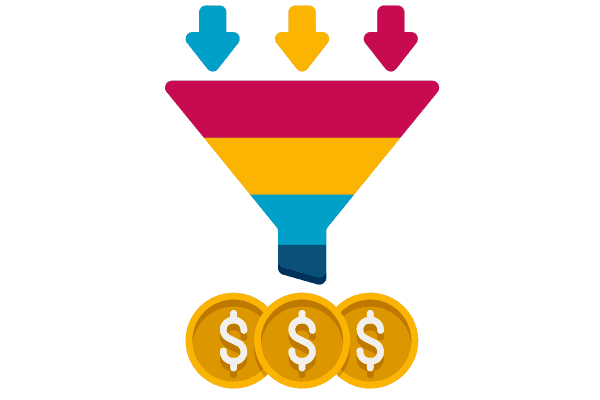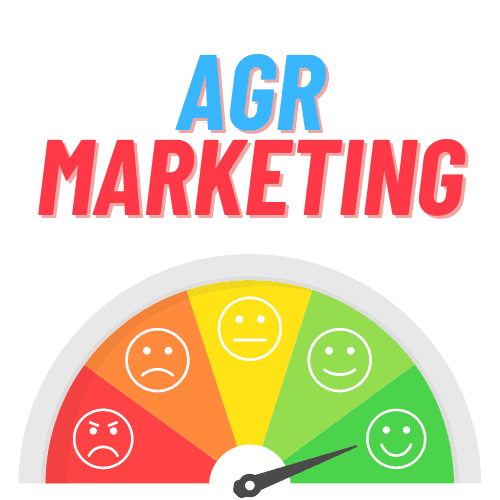What are the Requirements for Affiliate Marketing? Success Essentials for (2023)
Achieving Success in Affiliate Marketing: The Must-Have Requirements for 2023
Have you ever wondered how the business model of affiliate marketing works? As a seller, it’s a straightforward job where you promote and sell products or services for a company, earning commissions for each sale made through your referral.
This role of an affiliate marketer can be quite rewarding! What are the Requirements for Affiliate Marketing?

Affiliate marketing campaigns offer an array of benefits for any business model. They provide opportunities for affiliates to earn passive income from their content, whether on an affiliate website or through the influence of other platforms.
The key is to target the right audience and avoid common affiliate marketing mistakes like not choosing the right product or network.
By doing so, you can tap into the potential of this digital marketing strategy and maximize your affiliate commissions. Whether looking at ticket affiliate marketing or promoting other products via influencers, understanding the requirements for successful execution is crucial in this game!
Understanding Affiliate Marketing Operations
Basic Operational Structure
Affiliate marketing is like a triathlon. It involves three key players: the merchant or seller, the affiliate, and the consumer. Let’s break down this business model. The seller offers a product, the affiliate promotes it, and the consumer buys it, generating commissions for the affiliate.
Like the race organizer in our triathlon analogy, the seller has a product to market as part of their marketing business. The affiliate or publisher, like an athlete, promotes this product on their platform, utilizing practical marketing efforts.
Finally, there’s the consumer or customer who purchases the product after seeing the affiliate’s marketing campaigns—think of them as spectators cheering on their favorite athlete.
Role of Merchants, Affiliates, and Consumers

Each player in this triathlon has a unique role:
- Affiliate marketers are provided products for promotion by merchants, boosting their marketing efforts. These merchants offer commissions on sales through affiliate marketing programs, benefitting the affiliate marketing business.
- Affiliates promote these products to their audience using various marketing strategies such as blogs, social media platforms, websites, etc. Through seller programs, they earn commissions.
- Consumers purchase these products through affiliates’ promotion efforts.
It’s like a journey through time, where players pass the funnel, for instance, in a relay race to ensure victory.
Fundamental Components: Tracking System, Commission Payment, Product Promotion
Just like any sport needs rules and equipment, business in affiliate marketing relies on specific components such as product requirements and programs.

- Tracking system: This is like a referee in our sports analogy—it keeps track of all actions taken by consumers after they interact with an affiliate link or ad.
- Commission payment: Think of this as athletes’ prize money—it’s what affiliates get paid for every sale made through their promotional efforts.
- Product promotion: This is akin to training sessions before a big match—affiliates use different strategies to promote merchants’ products effectively.
Here’s how it works:
- The marketing-focused merchant provides a product affiliate link or seller ad with a unique tracking code.
- The affiliate promotes this link/ad on their platform.
- When consumers click on this marketing link/ad on the seller’s website and make a product purchase (or take any predefined action), it gets tracked back to the affiliate via the tracking code.
- The marketing-focused merchant then commissions that specific seller affiliate based on these tracked actions related to the product on the website.
So you see? Understanding your website’s product requirements for affiliate marketing isn’t rocket science! It’s more like running a marathon—with proper understanding and effort; you can reach your goal as a successful seller!
Selecting Profitable Affiliate Programs
Choosing the right affiliate program for your product can make or break your success in affiliate marketing on your website. It’s not just about picking any seller’s program that comes your way but selecting one that aligns with your interests and has the potential to bring you high returns.

High Commission Rates, Reputable Brands, Relevant Products
Many marketing affiliate programs offer different commission rates to sellers. Some might be low, while others are high. But don’t be swayed by the numbers alone. Look at the reputation of the brand and its website too.
Affiliate programs from reputable companies tend to have quality products and services, which means higher chances of conversion for the seller.

- High Commission Rates: The more money you can earn per sale, the better. However, don’t overlook other factors like product relevance and brand reputation.
- Reputable Brands: Partnering with well-known brands increases trust among your Audience and boosts conversion rates.
- Relevant Products: Promote products related to your niche for a higher chance of sales.
Market Research: Your Key Tool
Before jumping into multiple marketing programs, conducting market research is crucial. Use resources such as search engines, website platforms hosting affiliate programs, or even email lists from companies offering these programs.
This helps you understand what’s trending in your niche and which products resonate with your audience.
Remember, managing your website and product isn’t a one-time thing. Regularly revisit these affiliate programs and affiliate marketing resources to stay updated on new opportunities and trends.
Risks of Poor Program Selection
Choosing the incorrect affiliate marketing program for your product could cost you significant money and time on your website.
- Low Conversion Rates: If an affiliate program doesn’t resonate with your website audience or its affiliate marketing products aren’t relevant to them, they won’t click through or buy.
- Damaged Reputation: Promoting poor-quality products through affiliate marketing or partnering with disreputable affiliate programs will tarnish your image among followers on your website.
- Wasted Resources: Time spent promoting failing affiliate programs and products on your website wastes time that could have been better used on profitable affiliate marketing strategies.
Preparing for Affiliate Marketing Action
Essential Tools and Resources
The first step to becoming a successful affiliate marketer is gathering the essential marketing tools, including a product and a website. You don’t need a fancy office or high-tech equipment, but you do need these basics.

- A solid computer: Your laptop or desktop will be your command center.
- Reliable internet connection: This isn’t just about speed; it’s about consistency too.
- Affiliate marketing software: These tools can help streamline your marketing efforts and manage your affiliate campaigns more efficiently.
You must also develop specific skills to run a successful affiliate marketing business. These include SEO knowledge, the ability to write engaging product content for your website, and email marketing know-how.
Building Your Platform
The next step in your marketing strategy is setting up your platform. Most marketing professionals opt for a professional website or blog where they can post reviews, tips, and other marketing content related to their affiliate products.
Crafting an engaging blog post is critical in the marketing business. Remember, as a website affiliate marketer, you’re not just selling a product but providing valuable information that aids consumers in making informed decisions.
Here are some quick tips:
- Choose a clean, professional design for your site.
- Make sure it’s easy to navigate.
- Regularly publish fresh content related to your niche.
Legal Considerations
Lastly, it’s essential not to overlook legal considerations in your product’s affiliate marketing strategy. Disclosures and privacy policies aren’t just necessary evils but vital in protecting you, your product, and your audience.
Every time you publish a marketing affiliate link for a product on your site, you should disclose that relationship clearly and conspicuously so that readers understand they are clicking on an affiliate link.
Your privacy policy should explain what data you collect from visitors (like cookies), how that data is used in affiliate marketing (such as for tracking clicks on your product), who it may be shared with (like the merchant or affiliate programs), and how users can control their data.
Becoming a successful marketing affiliate involves more than signing up with a seller and promoting their products on your site—it requires careful planning and marketing preparation.
But with these steps in hand, you’re well on your way toward launching successful marketing campaigns!
Building Traffic and Audience Rapport
SEO: Your Best Friend
The world of affiliate marketing is a bustling product marketplace. And in any product marketplace, footfall, or in this case, web traffic, is king. That’s where SEO strategies strut onto the stage.
By optimizing your content with specific keywords relevant to your target audience, you can drive a steady stream of traffic to your product site. It’s like putting up a big neon sign that says “This way, folks!” for search engines.

But remember, Google and its ilk are intelligent cookies. They won’t fall for affiliate marketing keyword stuffing or other black-hat tactics related to your product.
So stick to creating quality content that genuinely resonates with your Audience’s interests while naturally incorporating those all-important keywords.
Social Media Engagement
Now let’s talk about another titan of the digital age – social media platforms. These channels are not just for sharing cat videos (although we all love those).
They’re powerful tools for building rapport with your audience, growing a loyal band of followers, and executing effective affiliate marketing strategies. Promoting the right product can make these platforms significant to your business growth.
Indeed, people purchase products from those they trust and like in affiliate marketing. So, utilize these platforms to display the human aspect of your brand.
- Share behind-the-scenes peeks into how you work
- Engage directly with customers through comments and messages
- Collaborate with influencers who share your values
All these actions help build a solid product reputation, making customers more likely to click on your affiliate links.
Valuable Content Creation
Finally, we must chat about the beating heart of any successful affiliate marketing campaign – valuable product content creation. Whether you’re a blogger or an influencer, creating content that genuinely connects with your specific audience is crucial.
Consider this – every product content is like a dialogue between you and your reader or viewer. If you keep rambling about irrelevant matters (like how fantastic you are), they’ll lose interest quicker than you can say “affiliate marketing.”
However, they’ll hang onto every word if you concentrate on topics they’re genuinely interested in (like solving their problems).
So take time to understand what makes your product appealing to your audience in affiliate marketing.
- What problems do they face?
- What solutions are they looking for?
- How can your affiliate products help them?
Use these insights about affiliate marketing and your product as fuel for creating engaging blog posts, videos, and social media posts – whatever format suits your style best.
Optimizing Affiliate Links and Sales Funnel
Integrating Affiliate Links
Integrating product affiliate links into your content can be like walking a tightrope. You want to include enough product links to generate revenue but not so many that it disrupts the user experience.
WordPress is an excellent platform for this, allowing you to add product affiliate links to your posts easily.

One method is to weave your affiliate link naturally within the flow of your text. For instance, if you’re writing about a product or service, mention it in context and include the link.
This way, readers won’t feel bombarded with blatant promotional material.
Another option is using the Hostinger website builder to design custom banners or buttons for your affiliate marketing, which contain your unique product link. These can be placed strategically throughout your site without being overly intrusive.
Optimizing Sales Funnel
The product sales funnel is another crucial element in affiliate marketing. Here are some product-focused techniques to boost conversion rates.

- Create engaging content: Your content should provide value and entice visitors to click on your affiliate links.
- Clear call-to-action (CTA): Make sure each page has a clear CTA that directs visitors toward making a purchase.
- Streamline navigation: Ensure that users can easily find what they want on your site.
- Offer incentives: Discounts codes or exclusive offers can motivate potential customers to purchase.
Remember, optimizing an affiliate marketing sales funnel isn’t just about getting people in; it’s also about moving them through smoothly.
Monitoring Performance Metrics
Google Analytics is an excellent tool for monitoring performance metrics of both affiliate links and sales funnels. It provides valuable insights, such as how many clicks each link receives and where they are coming from.

Here’s how you can monitor these metrics:
- Set up Google Analytics on your website
- Track conversions by setting up goals
- Monitor affiliate traffic sources to identify which channels bring in the most visitors.
Regularly reviewing these affiliate stats allows you to identify areas for improvement and adjust your affiliate strategies accordingly.
So there you have it! By integrating affiliate links effectively into your content, optimizing sales funnels for higher conversion rates, and keeping an eye on performance metrics using tools like Google Analytics, you’re well on mastering the requirements of successful affiliate marketing!
Exploring Earning Potential in Affiliate Marketing
Factors Influencing Earnings
Let’s dive straight into the deep end. The earning potential in affiliate marketing hinges on a few key factors – niche selection, traffic volume, and conversion rate.
- Niche Selection: Your chosen niche can make or break your affiliate income. Some places have high commission rates but low search volumes, while others have high search volumes but low commission rates. It’s like walking a tightrope; you must find the perfect balance!
- Traffic Volume: More traffic equals more potential customers,e which equals… yup, you guessed it! More earnings! But remember, not all traffic is created equal. You need quality traffic that’s interested in what you’re promoting.
- Conversion Rate: This is where the rubber meets the road. You could have all the traffic globally, but your affiliate revenue won’t see an uptick if they aren’t buying what you’re selling.
Expectations vs. Reality
Now let’s get real for a second here, folks. There are tons of misconceptions about earning passive income from affiliate marketing. Some people think it’s a get-rich-quick scheme where money falls from the sky like raindrops. Hate to burst your bubble, but that isn’t true!
Affiliate marketing takes time and effort to build up and maintain. It’s not as simple as putting up some links and watching the cash roll in (if only!). You need to create valuable content and nurture relationships with your Audience consistently.
Showcasing Success Stories
But don’t let this discourage you! There are plenty of affiliate success stories out there too! Let me share a couple of things.
- Pat Flynn from Smart Passive Income reported over $2 million in affiliate earnings in 2017.
- Michelle Schroeder-Gardner of Making Sense of Cents earned over $50K monthly through her blog’s affiliate links.
These case studies show that earning a substantial income through affiliate marketing is possible with hard work and innovative strategies.
Remember, though, folks, these are exceptional cases in the affiliate world, and not everyone will achieve these levels of affiliate success right off the bat or even at all! But hopefully, seeing what’s possible can inspire you to give your affiliate journey your best shot!
So there you have it, folks – an honest look at exploring earning potential in affiliate marketing: factors influencing earnings, expectations vs. reality, and showcasing success stories.
Summarizing Affiliate Marketing Requirements
In a nutshell, becoming a successful affiliate marketer requires you to understand affiliate marketing operations. You have to know what works and what doesn’t. It’s not just about picking any affiliate program but choosing profitable ones.
Preparation is vital for affiliate marketing! Having your affiliate game plan before diving into the action is crucial. This includes having a solid affiliate website or blog, killer content, and an audience who trusts your affiliate recommendations.
Building affiliate traffic isn’t enough; you must also build rapport with your affiliate audience. They’re more likely to buy from someone they trust and like!
Optimizing your affiliate links and sales funnel is also crucial for success. Make it easy for people to click on your links and make purchases.
And lastly, always be exploring how you can increase your affiliate earnings in this field. There’s always room for improvement!
So go ahead, and consider these points when venturing into affiliate marketing. Remember that success doesn’t come overnight but is achievable with consistency and hard work!
Conclusion
In conclusion, affiliate marketing is a win-win space for content creators and marketers if approached with the proper focus and marketing skills. The good news is that the minimum requirements to start an affiliate business are pretty attainable.
You’ll need to set up an affiliate site on a web hosting platform, such as Hostinger Website Builder, and have an active email list to communicate with potential customers.
For example, bloggers like Ryan Robinson have proved that this can lead to lucrative affiliate sales with the right approach. Your affiliate network account is your source of unique tracking cookie IDs, crucial for earning commissions.
The cookie duration varies among affiliate programs, but each one will attribute sales to the person who sent a lead their way.
Notably, creating quality affiliate marketing content is critical. Content creators should constantly update their sites with new content, including reviews of affiliate products. This supports informed decision-making for your readers and improves your site’s search engine ranking.
For instance, the top content creators in the industry may participate in multiple programs and use their unique links to direct readers toward the affiliate product.
Today, with various affiliate networks available, it’s free for anyone to join, and no tests or barriers restrict people by name, country, or type of site. For many, tracking affiliate content performance is a daily task.
Reports are crucial to understand how much money your content is making. These can be viewed at any point of the day and give insights into the effectiveness of your marketing skills.
The order of choosing affiliate networks is essential. Look for networks that provide the best support, pay care to the details, and have high ratings among users. YouTube, for instance, has become a platform where affiliate marketers thrive.
Creating diverse content types, including engaging product reviews, helps build audience trust and drive more clicks to your unique link. Regular reports are essential to assess your content’s performance and identify optimal times for audience engagement.
A decision to join an affiliate network should result from carefully reading and understanding the affiliate program’s terms. To sum up, being part of many affiliate programs and understanding the nuances of each is the key to a successful affiliate business.
Themes, the type of content, and how you communicate with your audience also play a crucial role. In this exciting and ever-evolving industry, informed decisions and consistent efforts can lead to great results.
Finally, learning from successful affiliate marketers is invaluable. In summary, success in affiliate marketing hinges on a reliable hosting plan, valuable content, wise use of your affiliate ID and reporting tools, and a continuous learning attitude.
FAQs – What are the Requirements for Affiliate Marketing?
What does understanding Affiliate Marketing Operations mean?
This means learning how affiliate marketing works, including strategies successful marketers use, such as SEO techniques, content creation, and email marketing.
How do I select profitable Affiliate Programs?
Research is critical in affiliate marketing! Before deciding on an affiliate program, consider factors like commission rates, product quality, brand reputation, etc.
How do I prepare for Affiliate Marketing Action?
Start by setting up a website or blog where you will promote products/services as an affiliate marketer. Then create high-quality content that provides value to your Audience.
How can I build trust with my Audience?
By consistently providing valuable content and being transparent about your affiliation, you can effectively promote your affiliate products/services.
How do I optimize my Affiliate Links and Sales Funnel?
Ensure the affiliate links are visible and strategically placed within your content to attract clicks from potential buyers.
What does Exploring Earning Potential in Affiliate Marketing imply?
This involves continuously seeking new affiliate opportunities to grow your earnings, such as engaging in new lucrative programs or refining current affiliate strategies.
We’re reader-supported. We may earn an affiliate commission when you buy through links on our site.

Angus Robertson is an authority in online marketing, affiliate marketing, and Search Engine Optimization (SEO). With an innate passion for the digital world, he has spent the last two decades assisting businesses in amplifying their online presence and boosting profitability.






